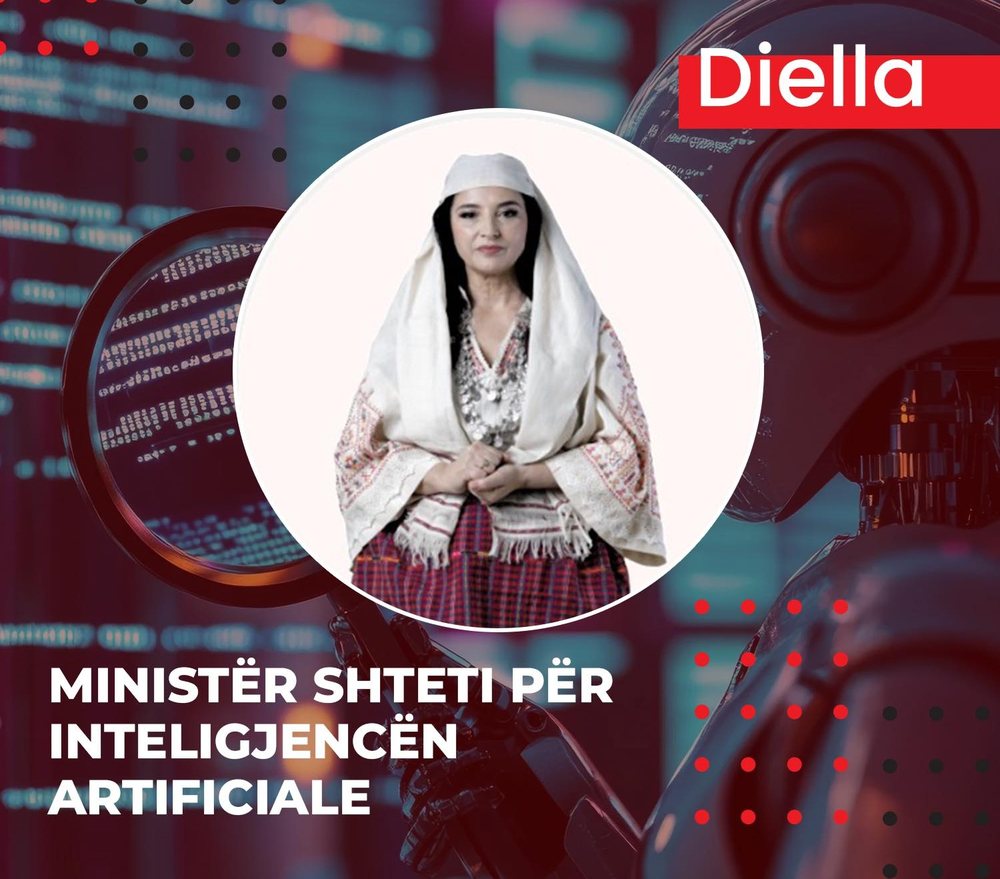
By Dr. Kostina Prifti
With the exception of news about immigration and criminal affairs, news from Albania is virtually non-existent in European media. However, the news about the birth of the Sun managed to eclipse the usual news, taking center stage.
The public interest in promoting the Sun is understandable. No EU country has attempted to elevate the idea of an artificial intelligence (AI) system to a ministerial position, even metaphorically. On the contrary, the inclusion of AI in public administration processes has been accompanied by mistakes, scandals, and – as a result – persistent skepticism. After the so-called “Toeslaggenaffaire” scandal, the Dutch government was forced to resign after the AI system had erred in its tasks of determining social benefits for the needy. Also in Austria, the implementation of an AI in public administration, with the aim of predicting employment opportunities for certain groups, was found to be discriminatory against women and people with disabilities.
The technical capabilities of AI are still characterized by the limitations of the negative examples above. Precisely for this reason, the news coming from Albania could neither be taken seriously nor ignored. It cannot be taken seriously because any expert informed about the potential of AI understands that the promises of this system remain a pipe dream. But neither can they be ignored because of the consequences that the implementation of this system brings in public administration. The procurement domain serves as an added concern.
The discussion in question consists of two types of problems. The first is the technical aspect. These systems are associated with transparency and accountability problems, related to the risk of unverifiable and uncontestable errors. As a result of these technical problems, AI systems can bring serious and irreversible legal and social consequences, especially when implemented without adequate mechanisms for oversight and objection.
The first question arises from the current functions of Diella, which serves as a chatbot. The latter have conversation generation functions based on large language models (LLMs). But decision-making AI systems are based on a different type of technology than chatbots. These are predefined rule-based systems (i.e., rule-based systems) or on automatic learning systems (i.e., machine learning).
AI is a broad term that hides fundamental differences between applications. We can think of it this way: an AI based on a GMJ is like a car designed for comfort and long journeys. When someone wants to use it for public decision-making, it is like trying to turn this car into a tractor for the field. The car may have a powerful engine and can move, but it is not designed for furrows, for pulling weights or for repetitive work regulated according to precise rules. Other tools are needed for this work: rule-based AI, which is like an industrial machine that follows the manual without deviations, or machine learning AI, which is like a modern tractor that learns the terrain, adapts to the conditions and does the work systematically. In the presentation of Diella, it was not explained to citizens how the car designed for e-Albania will function as a tractor for public procurement.
Even the most advanced AI decision-making systems are technically limited. So, even if Diella were to be repurposed from a chatbot to a decision-making AI, this transformation would come with its own technical problems. The literature and studies on decision-making AI are clear: these systems suffer from a lack of transparency and create accountability gaps, making it difficult to challenge decisions. Problems with transparency arise as a result of the complexity of these systems. We may know what we feed the system (the data) and what comes out (the outcome/decision), but we do not know what happens inside the system that processes the data to produce a result.
Similar systems have been proven to frequently make wrong decisions, harming individuals and groups. Just look at the Dutch example, where an AI system with fewer decision-making powers than was promoted for the Sun caused financial and personal harm to thousands of individuals, leading to the resignation of the government. The combination of the margin of error and the lack of transparency makes it difficult to challenge the decisions of these systems, leading to a lack of accountability.
Another risk for citizens is the possibility of manipulation of the system. This concern has added value considering the political context in Albania. Corruption and the use of public positions for personal gain not only cannot be combated with an AI system, but risk being reinforced by using it to camouflage corrupt actions as objective AI decisions. This concern, combined with the lack of transparency of AI and the margin of error that characterizes it, could lead to a situation where the AI system, Diella, is blamed for errors in any procurement that, for example, is under investigation by the BKH. At the same time, the experience of law enforcement agencies in investigating and adjudicating cases involving AI is very limited. This lack of expertise deepens the accountability gap in the implementation of these systems.
In similar examples in Europe, AI is introduced as a solution for efficiency, to speed up procedures and save time. But behind the technical promise often hides a high social cost: discrimination and bias appear as silent side effects. Meanwhile, in Albania, the promotion of Diella is presented as a weapon against corruption, promising impartiality and rigor. This is an unusual and almost unprecedented promise. In fact, AI systems are preferred because of efficiency, while bias and the margin of error are their main limitations and shortcomings. For this reason, the implementation of an AI in public administration, especially in the procurement domain, is a process that requires institutional prudence and legal guarantees. In the absence of these foundations for a responsible functioning, AI can worsen the decision-making reality and serve as an obstacle to the fight against corruption.
The President's decree appointing Diella to ministerial office appears to be in contradiction with the requirement of the Constitution of the Republic of Albania, which states that one of the conditions for being a minister is the age of 18. This fact could be presented before the Constitutional Court by certain groups, such as 1/5 of the deputies of the Assembly, to repeal that part of the decree as unconstitutional. In that case, Diella could again have the same decision-making functions for public procurement, but implemented under the responsibility of a ministry./monitor






















